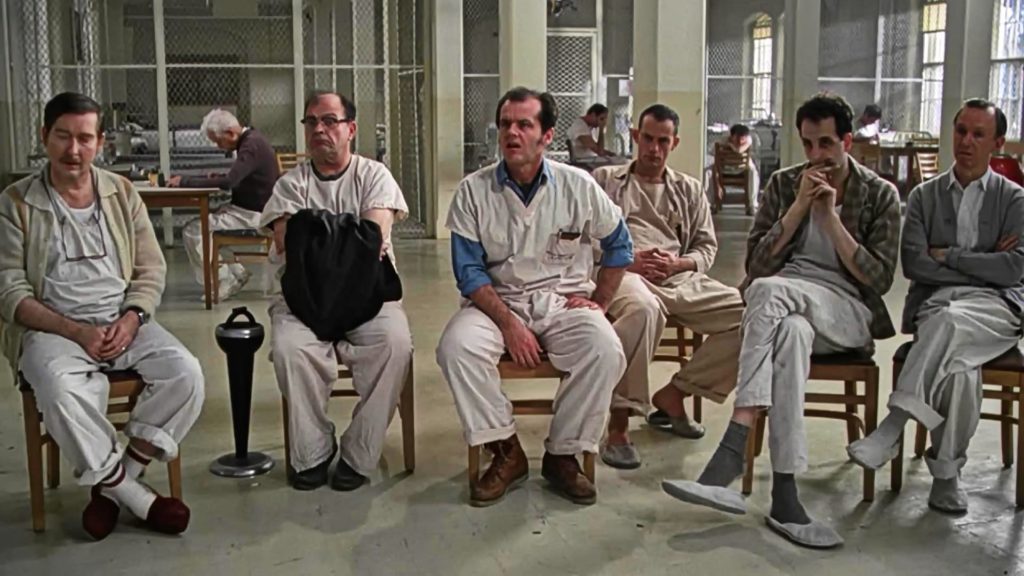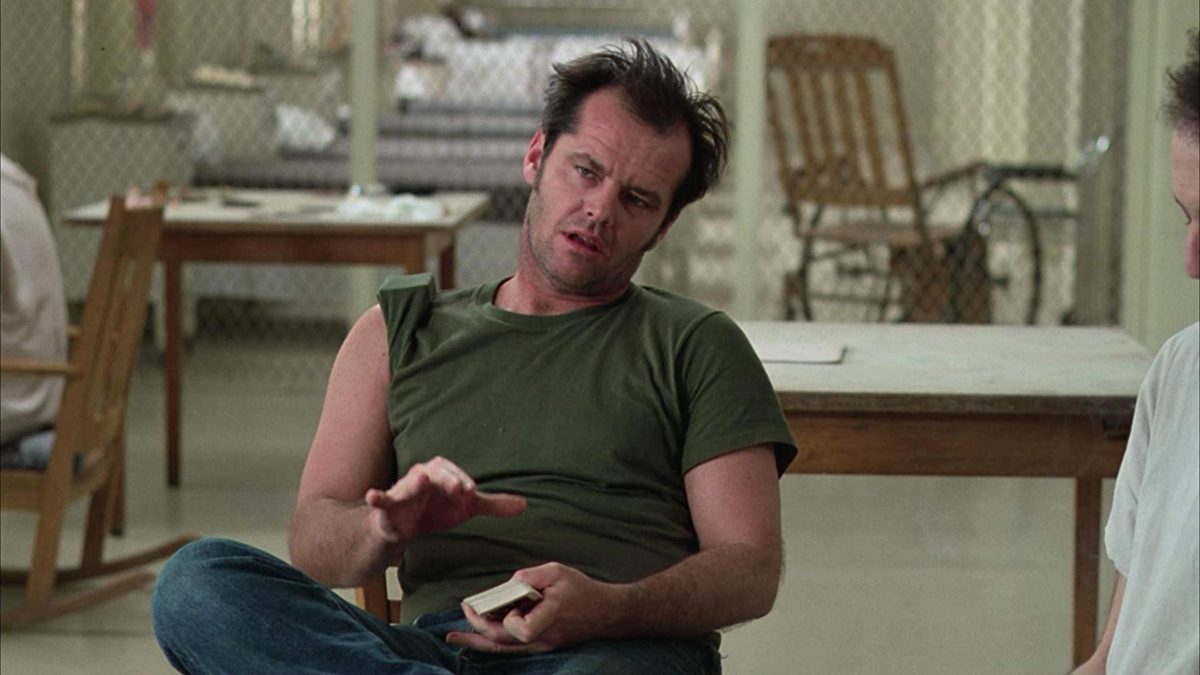Which one of you nuts has got any guts?
There’s a pretty major difference watching One Flew Over The Cuckoo’s Nest at age 33, with more life experiences under your belt, as opposed to age 18, when I first saw it. It remains a stirring movie, occasionally inspiring, but the immaturity of its take on the counterculture comes across as more than a little corny and reductive. Chauvinist, too.
All of that is to say that your mileage might vary on the movie; when it uses sex with a prostitute as an act of liberation and the near-murder of a female authority figure as the culmination of rebellion, it appears to my eyes to be regressive in a way the movie isn’t prepared to cope with.
That’s pretty much my only issue with the movie, but it’s an important one. If you’re not fully bought into the indulgent, spontaneous vision of freedom as represented by Jack Nicholson in peak chaos agent mode, it’s tough to anoint One Flew Over the Cuckoo’s Nest as one of cinema’s indispensable masterpieces, as opposed to a brilliantly crafted but flawed parable. I can only get halfway there.
I absolutely love everything else about One Flew Over the Cuckoo’s Nest: Miloš Forman’s direction does a terrific job of making us feel as enclosed as its characters in the claustrophobic ward, overburdened with structures and rules. The desaturated color scheme used by Forman and cinematographer Haskell Wexler emphasize a life lacking visceral sensation.

The cast might be the best part of all: Beyond Nicholson’s unforgettable turn, you have a huge, colorful cast of inmate patients including Danny DeVito, Christopher Lloyd, William Redfield, Sydney Lassick, and more, who all leaving an impression. Brad Dourif is heart-wrenching in a supporting role as the stuttering Billy Bibbit, perhaps the film’s central symbolic character.
Louise Fletcher’s performance as Nurse Ratched is truly distinct, even perplexing. She plays the role so straight and absent of villainy that it almost undercuts her presence as a figure of oppression. But she casts a huge shadow as an intimidating, controlling figure, which makes every battle against the system more poignant, even if she genuinely believes she’s right.
Jack Nitzsche’s minimal score also plays a key role, giving extra texture and psychological gravity to the story, especially the iconic ending.
One Flew Over the Cuckoo’s Nest is a monumental piece of cinema and a long-reigning favorite of mine. It’s a beguiling work, with problems and contradictions as a fable, but ultimately so well-made and -acted that I continue to adore it.
- Review Series: Top 100 (2009 List)
Is It Good?
Exceptionally Good (7/8)
Awards, Honors, & Rankings
Dan is the founder and head critic of The Goods. Follow Dan on Letterboxd. Join the Discord for updates and discussion.

